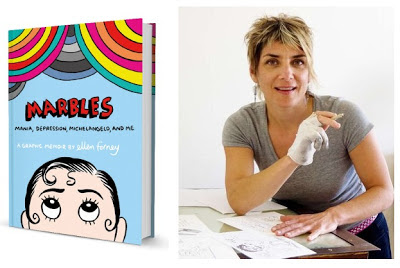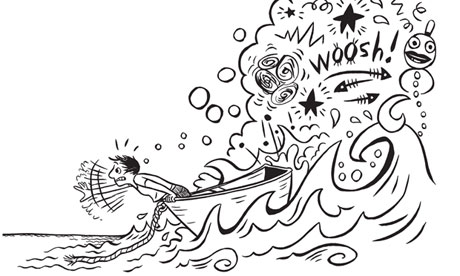

I have seen people rationalize the vagueness of horoscope prose as fitting for their lives. Now imagine if you were given the DSM manual and asked to self evaluate your mental state and were given a list of symptoms – what are the chances you’d behave exactly as you’d do when exposed to the unfiltered WebMD? I have always considered these self-diagnoses a form of psycho-astrology. You know how when you feel a bit unwell and you go on WebMD and suddenly, you feel as though you were dying of a terminal illness because ALL THE SYMPTOMS FIT. Her personal journey provides a core story that examines her mood disorders and their connection to creativity for the many "crazy artists" she imagines as part of "Club van Gogh." Readers struggling with their own mania or depression will find Forney good company, and others searching for insight into the minds of troubled artists will find Forney an engaging storyteller.Forney, Ellen (2012), Marbles: Mania, Depression, Michelangelo + Me, Robinson Alternating among her cartoonish panels, realistic illustrations, and photographs of the sketch pad she kept as part of her therapy, Forney allows her art to chronicle her outer life while revealing her inner state of mind. The long journey of medication and therapy is kept from gloom by Forney's lively, likable cartooning. Beginning with the manic episode that led to her diagnosis, Forney chronicles her journey toward reconciling the dual natures of bipolar disorder: a dangerous disease, but also a source of inspiration for many artists. She also researches the clinical aspects of bipolar disorder, including the strengths and limitations of various treatments and medications, and what studies tell us about the conundrum of attempting to “cure” an otherwise brilliant mind.ĭarkly funny and intensely personal, Forney’s memoir provides a visceral glimpse into the effects of a mood disorder on an artist’s work, as she shares her own story through bold black-and-white images and evocative prose.Įisner nominee Forney confesses her struggles with being diagnosed as bipolar in this witty and insightful memoir. Searching to make sense of the popular concept of the crazy artist, she finds inspiration from the lives and work of other artists and writers who suffered from mood disorders, including Vincent van Gogh, Georgia O’Keeffe, William Styron, and Sylvia Plath. Flagrantly manic and terrified that medications would cause her to lose creativity, she began a years-long struggle to find mental stability while retaining her passions and creativity.

Shortly before her thirtieth birthday, Forney was diagnosed with bipolar disorder. Cartoonist Ellen Forney explores the relationship between “crazy” and “creative” in this graphic memoir of her bipolar disorder, woven with stories of famous bipolar artists and writers.


 0 kommentar(er)
0 kommentar(er)
